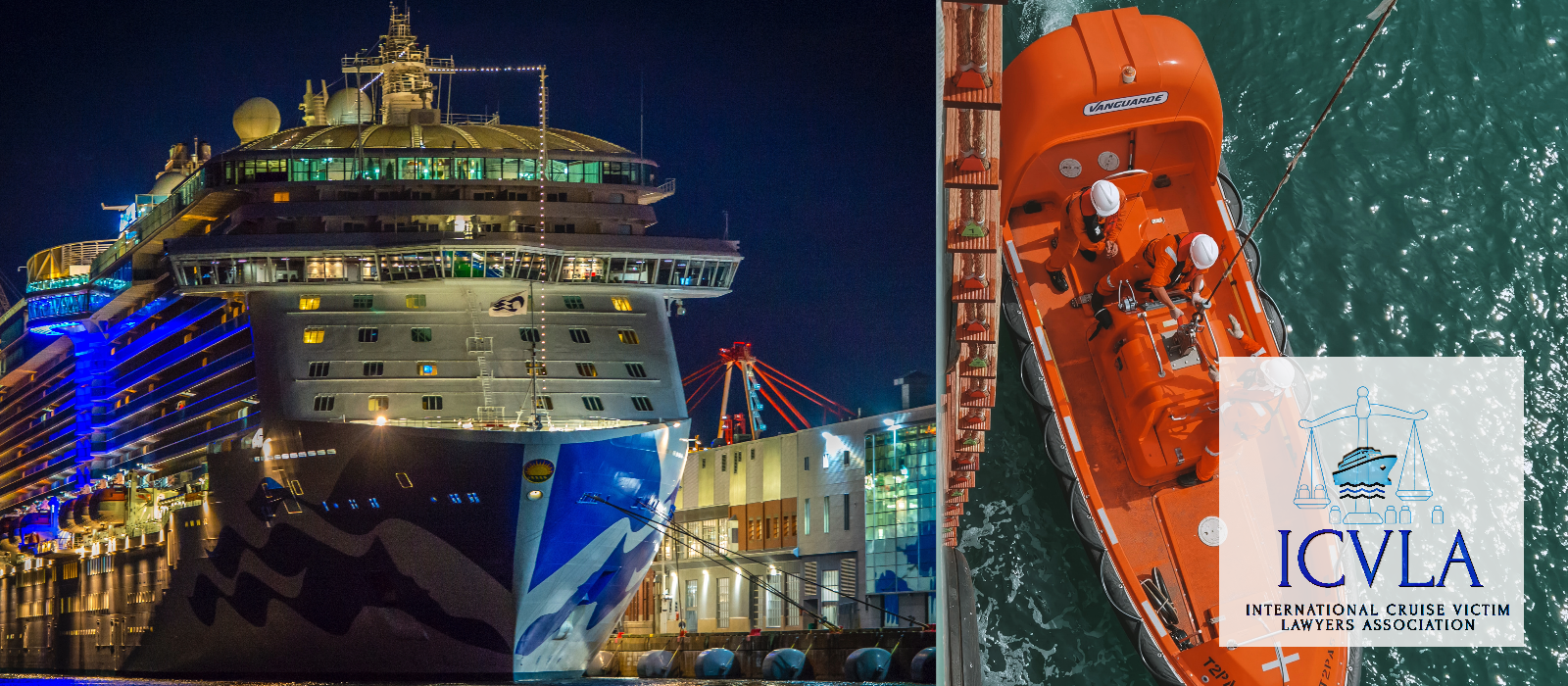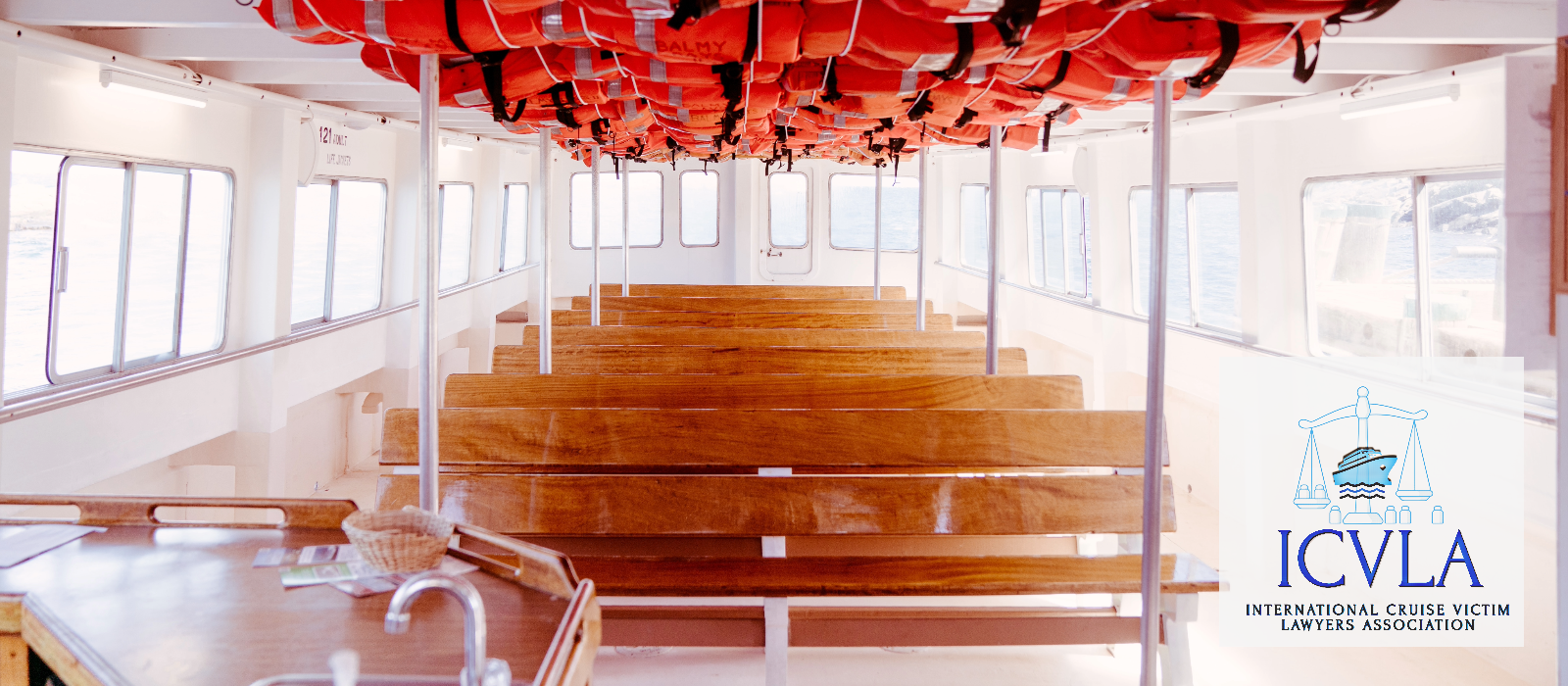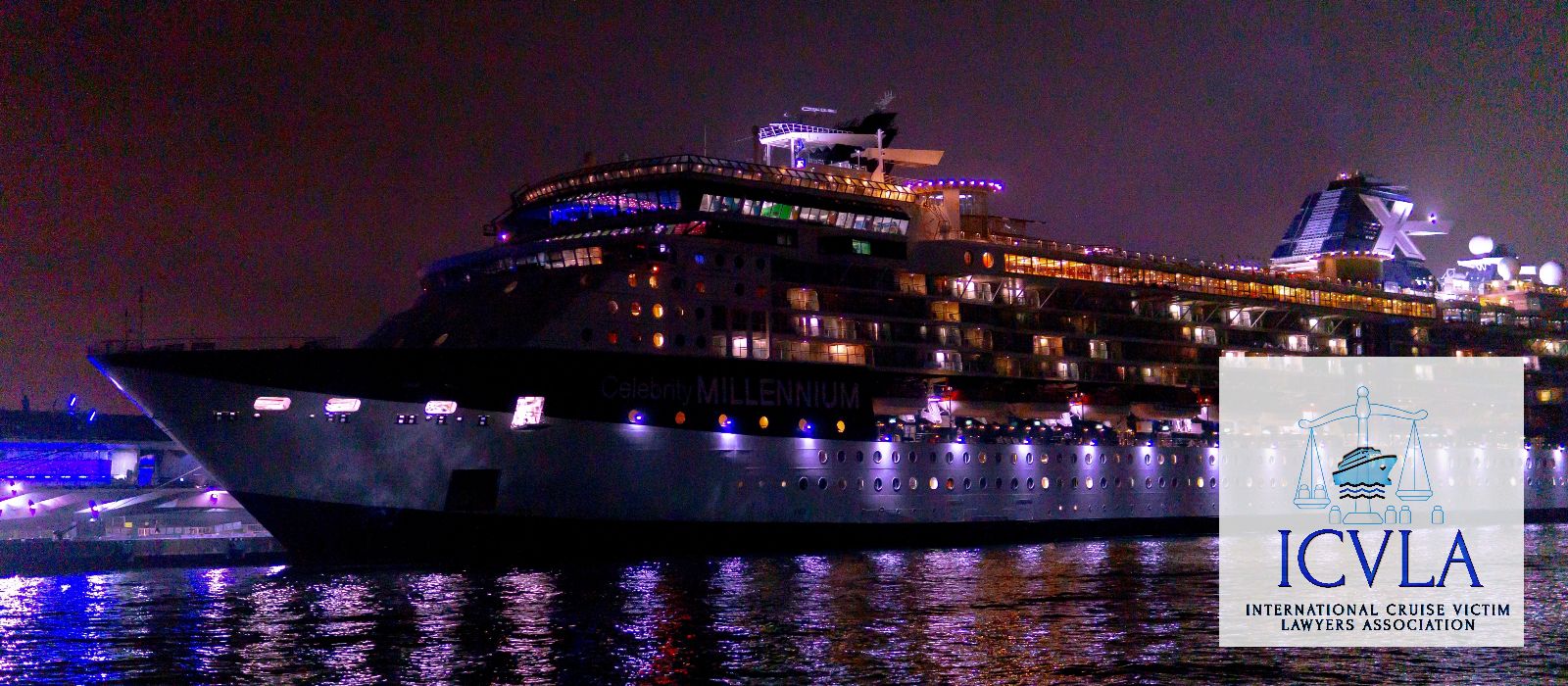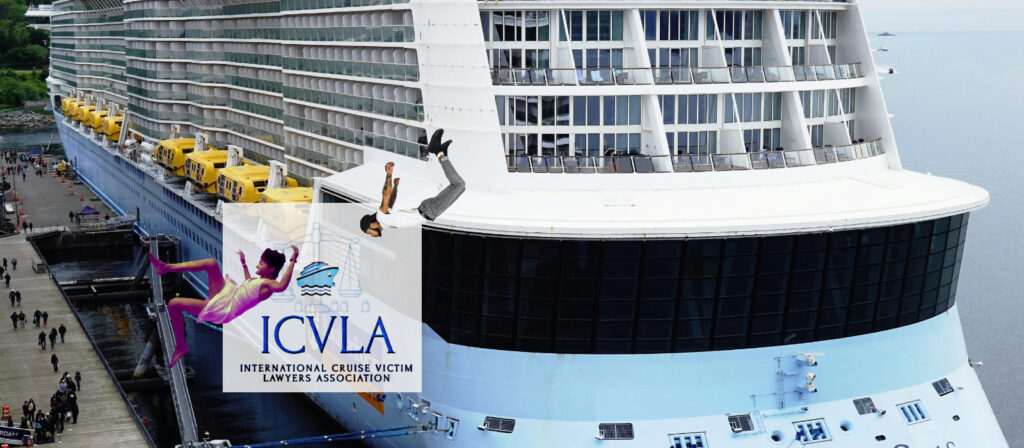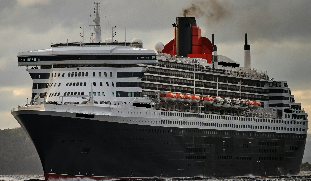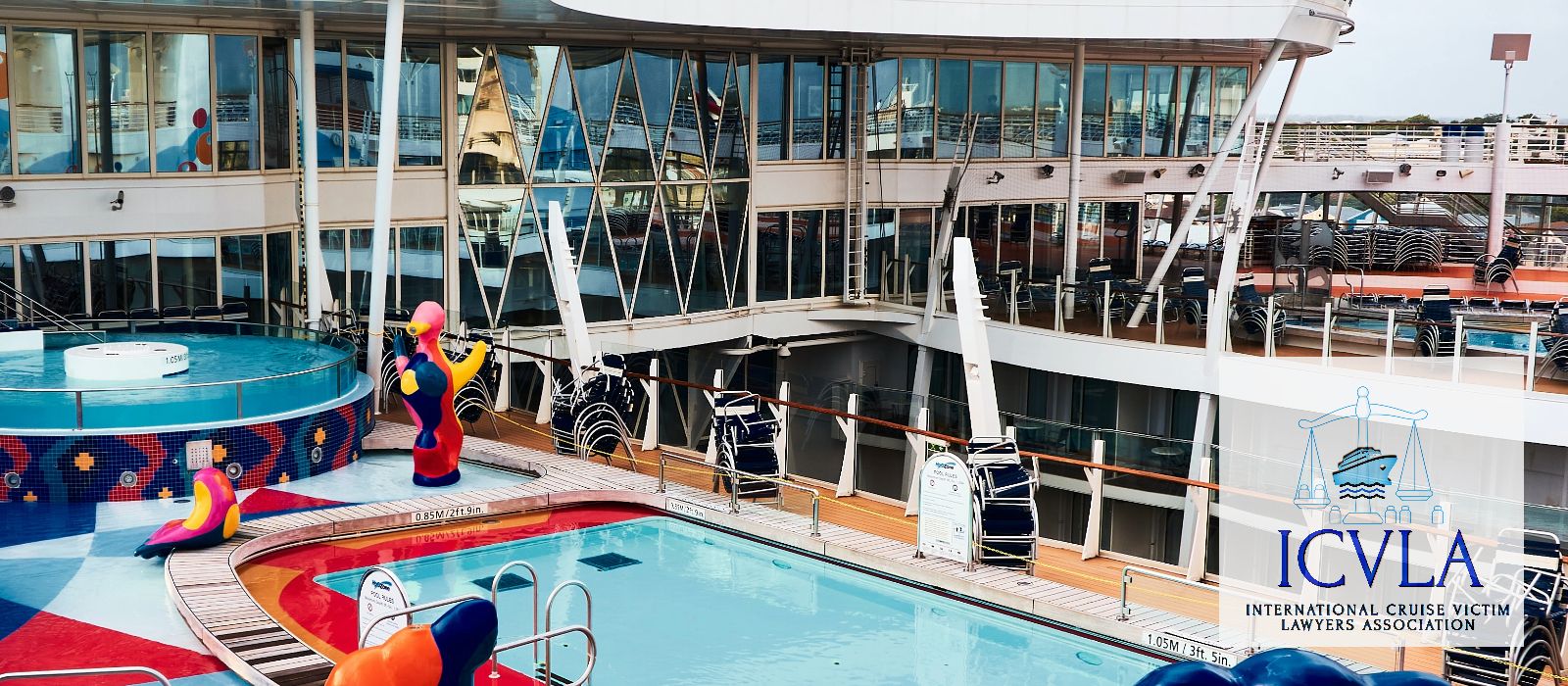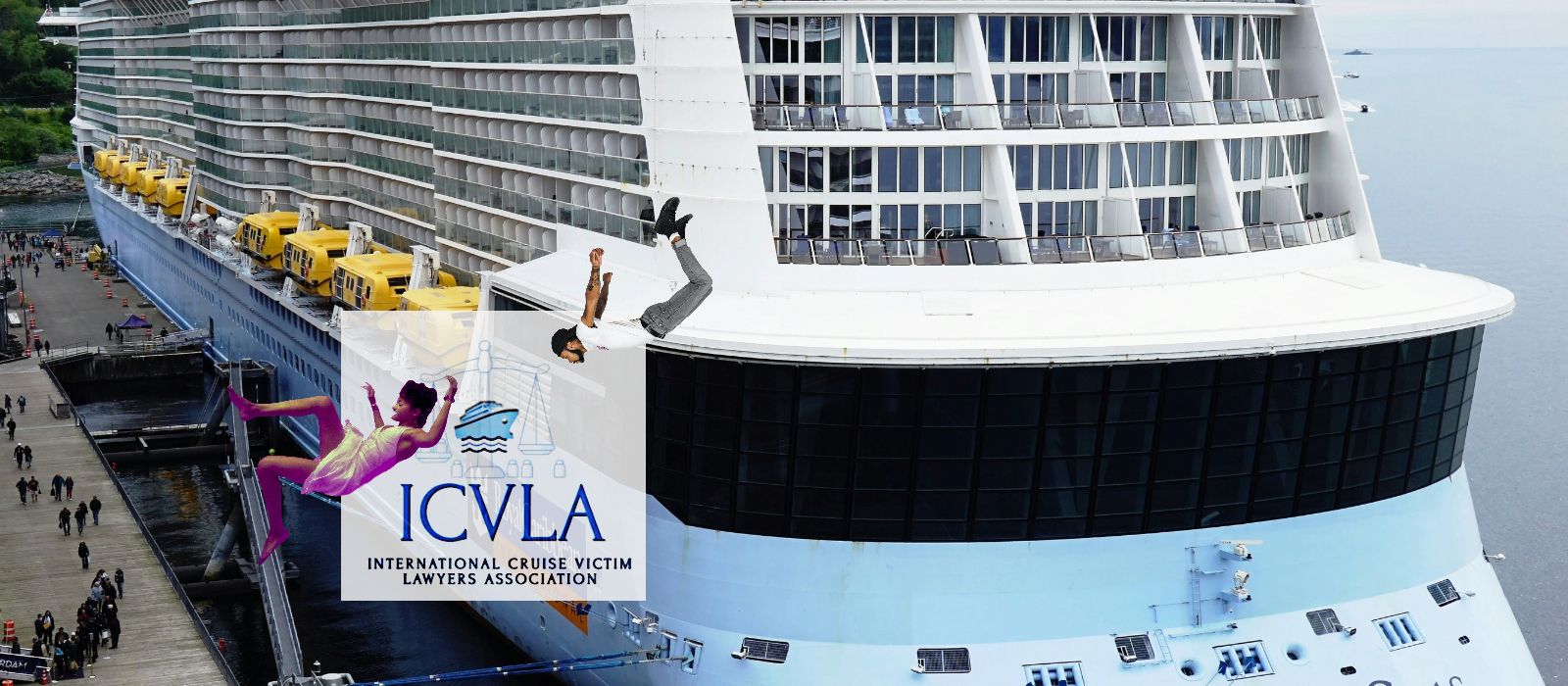Cruise vacations are supposed to be fun and trouble-free. But when they aren’t, what do the victims do besides look at questionable positive attorney reviews on easy-to-manipulate review sites like Yelp!? You probably don’t know what to do. But if you are injured on a cruise, each type of accident requires research. This article will help you learn more about dealing with cruise lines and contractors helping cruise ship companies, if injured on a cruise by type of accident.
Myriad paths to justice exist if you suffered shipboard injuries on a cruise journey, for example, on a shore excursion zip-lining adventure. This could led to a brain injury or back injuries, even a fatality. requing lifetime medical treatment. Every cruise ship operator must maintain established safety management systems to help if you get injured on a cruise. Cruise ship operators are legally mandated to have written policies and procedures to investigate and document cruise ship accidents. Therefore, if a passenger sustains an injury, a standardized process and a shipboard investigation must be ready to deploy.
If a cruise passenger is injured, they may qualify for financial compensation. We understand practicing law is probably not your thing. But there are passenger protocols to follow to win this thing and not be out of pocket for medical expenses and psychological therapy sessions. For example, if you were injured on a cruise ship, you usually must file a claim with the proper parties per your passenger ticket contract. Contact us for a free consultation with a cruise ship lawyer conveniently located in your country or state today.
A No-Fee Guarantee Honored By All ICVLA Lawyers?
Do you want to sue a cruise ship for falls or injuries you suffered aboard or on an excursion? The cruise ship accident lawyer placement team at ICVLA will try to help international cruise victims find a cruise ship accident lawyer in our network. We aim to help you find a cruise ship injury lawyer for your type of accident at no cost.
We will move to locate you an experienced personal injury attorney with a proven track record for honesty, expertise, experience, and trust by peers and past clients. In sum, if you were injured on a cruise liner, our mission is to find someone to handle your case swiftly and competently!
What About Up Front Costs?
Most personal injury lawyers who contribute to ICVLA charge their clients no fees or costs in advance.
Background
“Cruise lines, some of the world’s most lucrative businesses, transport 13 million Americans annually. Yet, they are also amongst the world’s most unregulated and untaxed businesses. Their political connections and huge campaign donations make them almost as untouchable as the pharmaceutical industry, even when people die. So, what happens when passengers or crew members get injured on cruise due to the negligence, carelessness, or incompetence of the cruise lines themselves?” – Michael Ehline
Thankfully, U.S. courts can hold cruise lines accountable under general maritime law if you’re injured on a cruise. They must provide a safe environment without hazardous conditions that could result in accidents and serious injuries. The esteemed International Cruise Victims Legal Association (ICVLA) offers a comprehensive article elucidating circumstances for which you can claim damages after being injured on a cruise.
What statistics could be relevant?
Understanding the prevalence and circumstances surrounding cruise ship injuries can provide valuable insights if you were injured on a cruise ship. Available studies and data on the subject shed light on critical patterns while putting the scale of the problem into perspective. With this knowledge, passengers can better understand the risks and make informed decisions about pursuing a claim or personal injury lawsuit.
Whether it’s in the United States or elsewhere, the lawyers who contribute here want you to understand the risks presented by cruise ships and cruise ship operators.
Accident Rates on Cruise Ships
A notable piece of information is cruise ship accident rates. Knowing the prevalence of dangers, in general, can help passengers understand the likelihood of an incident happening during their trip. Moreover, understanding which areas of the cruise ship are most prone to danger can aid passengers in navigating the vessel more cautiously.
Cruise Ship Injury Data Point
The types of injuries commonly reported on cruise ships can also be a key data point. These statistics can provide insights into the most prevalent risks on cruise ships, from slips and falls to illness outbreaks. By knowing the most common injuries, passengers can take preventative measures and be vigilant about potential hazards.
Claims and Compensation For Cruise Ship Accidents
Statistics on injury claims could show how often passengers seek compensation after an accident and how successful these claims tend to be. This data can give injured passengers an idea of what to expect during the claims process. Understanding the typical compensation amounts can also help estimate the potential recovery of a person injured on a cruise vessel.
Cruise Line Accountability
Comprehensive data on cruise ship injuries can provide valuable perspective, but it’s important to remember that each case is unique. If you or a loved one has been injured on a cruise ship, it’s crucial to consult with an experienced attorney who can guide you based on your specific circumstances. A properly trained cruise ship lawyer would include data on common injuries and where and how they occur as part of their case workup and settlement demand package. We are ready to file your cruise ship injury lawsuit if we can’t get enough.
Understanding Cruise Ship Injuries: A Comprehensive Guide
Unfortunately, accidents and injuries are a reality on cruise ships. From harmful conditions on board to incidents during excursions, injuries can arise from various situations. Understanding the intricacies surrounding these cruise ship incidents is critical whether you’re a passenger or a crew member. Passengers must be prepared to handle any unfortunate situations that may arise. In this section, we’ll seek to provide the passenger injured on a cruise with an in-depth understanding of cruise ship injuries.
Closer Look at the Potential Risks From Being Injured on a Cruise
Onboard a cruise ship, there’s a multitude of areas where you could potentially suffer an injury. The ship is a vast structure with multiple floors, numerous rooms, shopping centers, theaters, pools, restaurants, etc. All these places must be appropriately maintained to ensure passenger safety and avoid getting injured on a cruise.
Being injured on a cruise could be due to:
- Over-service of alcohol
- Swimming pool incidents, or poorly trained lifeguard staff
- Rock climbing can lead to being injured on a cruise.
- Elevator and escalator mishaps
- Situations involving unsecured objects
- Injuries due to dangerous surface conditions, both on board the vessel or while docking
- Illnesses stemming from contaminated pool water or drinking water
- Incidents resulting from falling overboard
- Tragic instances of drowning
- Unfortunate circumstances involving faulty elevators, escalators, and handrails
- Mishaps with smaller vessels like dinghies or tender boats
- Injuries caused by malfunctioning automatic doors
- Onboard recreational activities
- Physical harm, such as spinal injuries, back injuries, and fractured bones resulting from poorly maintained facilities
- Serious injuries, including traumatic brain injuries or organ damage, could occur due to assaults by cruise ship crew members or fellow passengers.
Shore Excursion Injuries
Shore excursions are another significant area where a passenger could be injured on a cruise but off the cruise ship itself. Unfortunately, holding liable parties accountable can be pretty complex as these excursions are usually organized by independent contractors over whom the cruise line may claim to have no control.
Inevitable accidents that could cause severe injuries during shore excursions are:
- Tender boat incidents
- Transport vehicle mishaps
- Hiking or climbing
- Diving and snorkeling
- Parasailing mishaps
- Zipline accidents.
Identifying the Right Course of Action
ICVLA, a professional volunteer attorney rating organization experienced in cruise ship injuries, is an excellent resource to guide you through the entire process after getting injured on a cruise liner.
The Poorly Regulated World of Cruise Lines: What You Need to Know
Cruise lines have long tried to evade specific responsibilities and liabilities regarding their passengers and crew’s safety and well-being despite stringent regulations. In particular, their hiring practices often lead to the employment of people from cultures that treat women wearing bikinis as slaves or criminals. How does a cruise operator conduct criminal background checks on someone if their criminal acts are not crimes in their home countries?
It’s not like there would be a police report on file, right? If negligence or incompetence of the cruise line causes an injury or assault, the cruise line can be held accountable. Let us find someone to make the right cruise ship accident claims in a timely fashion. Let us ensure you have the right to file your cruise ship injury lawsuit later.
Understanding the Fine Print: Passenger Ticket Contracts and Injury Claims
When you book a cruise, the fine print in your ticket contract dictates the terms for filing an injury claim. The Passenger Ticket Contract usually contains several pages of technical jargon meticulously designed by maritime lawyers over a period of time. But for an injury claim to be successful, your lawyer must establish that General Maritime Law applies to the incident.
This must show whether the expected standard of care or “reasonable care under the circumstances” was provided and if the cruise line. It must be clearly communicated. The Passenger Ticket Contract must contain terms and conditions for the passengers, such as using headers and a bolded font.
Here’s what’s usually covered:
There are four main components of Passenger Ticket Contracts and cruise ship injury claims:
- Determining the correct legal jurisdiction: for instance, the Federal Court in Miami, Florida, may be the venue for filing cruise injury claims. However, Princess would be in California—some victims on cruise ships file in Washington state, and so on.
- Timely Notice: Typically, you must alert the cruise line of your claim within six months of the incident.
- Statute of Limitations: Next is to sue in court. (usually federal court.) This is usually one year from the date of the cruise ship incident, assuming you complied with the passage contract notification. However, some extensions may apply in extenuating circumstances.
- Establishing if the Athens Convention applies, a treaty often referenced in Passenger Ticket Contracts that caps damage awards. (This Convention does not apply to voyages involving a U.S. port.)
- The Athens Convention: Often mentioned in cruise ship ticket contracts, this treaty limits damages but doesn’t apply to voyages involving U.S. ports.
CAVEAT in SUM: In most cases, you have 180 days after an accident to inform the cruise line of your claim. A lawsuit must then be filed within one year after the incident occurred, no matter the type of accident. The location or ‘venue’ for filing the lawsuit is usually specified in the Passenger Ticket Contract. This location is often the Federal Court in Miami, Florida, for many major cruise lines. Sometimes, it could be in Ft. Lauderdale, Orlando, Florida, Los Angeles, California, or Seattle, Washington. For a detailed list of where a lawsuit should be filed for each cruise line and the names of the service ships, please visit this link. ICVLA
Swift Action: Timely Reporting Your Incident to Cruise Companies
When an injury happens on a cruise ship, your first course of action should be to report it immediately and not just wait till later. Provide a statement and seek medical attention straight away. Remember, your right to claim compensation is preserved only if you provide notice and file a lawsuit within the specified timeframe. You need to establish a causal connection from the injury to the incident to medical care.
Injury Risks on a Cruise Ship: From Eateries to Excursions
Cruise ships offer various activities and amenities, each with a unique risk of injury. From food poisoning in restaurants, pools, or rock climbing walls to injuries during shore excursions, claimable injuries aren’t limited to onboard slips and falls.
Who Is Held Liable In A Cruise Ship Injury & Assault Case?
Cruise ship owners bear legal responsibility for negligence when a cruise ship accident occurs due to inadequate emergency measures, poor maintenance, insufficient security, subpar sanitation, or staff incompetency.
Understanding these potential liabilities for cruise ship emergencies can be critical. The cruise ship industry has specific guidelines for when and where injury claims can be filed. More often than not, these regulations are available in the fine print of your passenger contract, also known as the “Passenger Ticket Contract.” However, the comprehensive details of this agreement are usually not present on the ticket but on the cruise line’s website.
An In-Depth Look at Cruise Ship Shore Excursion Injuries
Shore Excursion Injuries: Unmasking the Realities
While the thrill of exploring new destinations during shore excursions is undeniable, these adventures can sometimes lead to unexpected injuries for cruise ship passengers. One must understand the complexities surrounding cruise ship excursion injuries and the involved parties potentially at fault. Getting to the root cause of such incidents and knowing your rights form the cornerstone of any successful claim against the responsible party.
The Complex Web of Liability in Shore Excursion Accidents
The liability in cruise ship shore excursion accidents can get entangled in a web of complex legalities, as numerous parties can potentially be held responsible. Cruise lines may promptly distance themselves from liability, citing the shore excursion operators as independent contractors over whom they claim no control. In turn, the so-called “independent” operators might argue that the U.S. courts are not the appropriate platform to address their assumed negligence or that the courts lack jurisdiction over them.
Further complicating matters are specific clauses in shore excursion contracts, which limit or waive the liability of the cruise line and the excursion operator. The complex nature of these clauses, often in fine print, makes understanding your rights and pursuing a valid claim challenging. But passengers can still prevail with the right cruise ship rights lawyer.
Various Scenarios Leading to Shore Excursion Accidents
Shore excursion accidents causing severe injury can occur in a myriad of scenarios.
Here are some common incidents:
- Tender boat accidents can occur while ferrying passengers from the cruise ship to the shore.
- Transport vehicle mishaps: Accidents involving the transport facilities arranged by excursion operators.
- Hiking and climbing accidents: Accidents that can happen during adventure activities such as mountain hiking or rock climbing.
- Water-based activities: Incidents during diving, snorkeling, parasailing, or while using ziplines can also lead to severe injuries.
Poorly Informed about Dangerous Areas
Cruise lines are also responsible for cautioning passengers about any potentially dangerous areas or conditions at the ports of call. Failure to do so can bolster a personal injury claim if a passenger gets injured during the shore excursion. Besides, families of those who have suffered wrongful death also have the right to demand compensation from either the cruise line or the tour operator.
Remember, successively going through complex legal puzzles requires assistance from a seasoned attorney. Laws protecting the rights of injured passengers are there, and understanding them should be your priority. It is essential to take informed steps, especially when your health has been harmed due to someone else’s negligence or oversight.
Cruise Ship Shore Excursion Recreational Scuba Injuries?
Scuba diving is one of the many adventurous activities cruisers offer during shore excursions. It’s fun and exciting, but it can also be dangerous if not conducted with proper safety measures in place. But who is responsible if a passenger is injured during a scuba diving excursion? Here’s what you need to know.
Causes of Scuba Diving Injuries in Cruise Ship Shore Excursions
While scuba diving, accidents can happen due to a variety of reasons. They can range from lack of proper training and equipment to the negligence of the instructor or crew.
Here are some common causes of scuba diving injuries:
- Improper Equipment: Using faulty or ill-maintained scuba equipment can lead to severe injuries. This can occur if the diving suit, mask, or oxygen tank malfunctions underwater.
- Poor Training and Supervision: Inadequate training or insufficient supervision by the dive instructor can lead to inexperienced divers putting themselves at risk.
- Unsuitable Weather Conditions: Diving in rough waters or under poor weather conditions can lead to drowning and other fatal incidents.
Liability in Scuba Diving Accidents
Determining liability in the event of a scuba diving accident during a cruise ship shore excursion can be complex. As is often the case, cruise lines may claim that the tour operators are independent contractors and they do not hold responsibility for them. However, if the evidence suggests that the cruise line failed to vet the operator appropriately or if there was a safety breach from the ship’s end, the cruise line could be held liable for passenger injuries.
In other cases, if the diver signed a waiver, it could limit their legal recourse. However, since waivers cannot legally cover instances of reckless conduct or gross negligence if it can be proven that the operator acted recklessly or negligently, the waiver may not prevent a claim from being pursued.
Cruise Ship Shore Excursion Zipline Sex Abuse and Falling?
When you embark on a cruise, you expect to engage in exciting and pleasurable activities, such as ziplining, which is increasingly offered during shore excursions. Unfortunately, these adventure-filled activities come with their own risks. Falls from defective or improperly secured ziplines can lead to severe injuries or in extreme cases, even fatalities. Moreover, these activities also pose potential settings for sexual abuse against cruise ship passengers. It’s important to know that cruise lines and excursion operators have a duty to ensure your safety and well-being during these activities.
Sexual Abuse During Shore Excursions
Additionally, the unfortunate reality is that sexual abuse can occur during shore excursions. This could involve cruise ship staff, other cruise ship passengers, or staff from contracted excursion companies. It is critically important that any allegations of sexual abuse are taken seriously, with immediate reporting to the relevant authorities. Cruise lines are responsible to their passengers and should take all necessary steps to protect them from such traumatizing experiences.
Shore Excursion Tender Boat Accidents?
Tender boat accidents are another critical category of injuries that can occur during a shore excursion. A tender boat, often used to transport passengers from the cruise ship to the shore when the ship cannot dock, can pose several risks.
- Overcrowding: If the tender boat is filled beyond its capacity to transport maximum passengers, it can increase the chance of instability-related accidents.
- Improper training: If the operator of the tender boat lacks the necessary training or experience, it could result in accidents due to incorrect navigation or mishandling.
- Poor maintenance: If the tender boat is deficient in upkeep, the risk of mechanical or operational failings escalates.
If you’ve been injured in a tender boat accident during a shore excursion, it’s crucial to report the incident promptly. You should also gather evidence by taking pictures of the location and noting any potential witnesses.
Shore Excursion Personal Watercraft Accidents?
Thrill-seekers may opt for activities involving personal watercraft, such as jet skis, during shore excursions. These activities, although fun, come with their set of risks:
- Collisions: A lack of operational instructions or marked areas can lead to collisions between personal watercraft or with other objects.
- High-speed injuries: Due to the high speeds that personal watercrafts can reach, riders can get severe injuries if they are thrown off the craft.
- Faulty equipment: Insufficient maintenance or faulty safety equipment can lead to serious mishaps.
If you’re injured in a personal watercraft accident during a shore excursion, ensure to seek immediate medical attention. Keep a record of all your medical treatments as it might be necessary for your claim.
Shore Excursion Hot Air Ballooning Accidents?
Hot air ballooning can provide an unforgettable experience during a shore excursion. However, this activity can pose risks, particularly when safety measures aren’t properly adhered. Common causes of hot air ballooning accidents include:
- Poor weather conditions: Unforeseen or suddenly changing weather conditions can pose significant risks during a hot air balloon ride.
- Improper landing: A rough or improper landing can cause injuries to passengers.
- Equipment failure: Malfunctioning equipment can lead to catastrophic failures in the air.
In the event of a hot air ballooning accident, it’s essential to seek immediate medical attention and record the details of the mishap.
Shore Excursion Submersible Watercraft Accidents?
Submersible watercraft activities, such as submarine excursions and scuba diving, are popular adventures for many cruise passengers. However, they have associated risks:
- Equipment malfunction: This could lead to drowning, oxygen toxicity, or decompression sickness.
- Lack of proper training: If participants are not appropriately trained, they could panic or make mistakes under water.
- Wildlife encounters: Dangerous or unpredictable interactions with marine wildlife can cause injuries.
If you’re injured during a submersible watercraft activity, seek immediate medical attention, document your injuries, and keep copies of all your medical records.
Shore Excursion Personal Water Taxi Accidents?
On some cruise excursions, personal water taxis are used as a mode of transportation for tourists to navigate the stunning waters and visit different ports. While these taxis may seem like a fun and efficient way to travel, they can also pose a risk.
Water taxi accidents could occur due to speeding, overload, driver negligence, equipment failure, or poor weather conditions. In these cases, the injuries sustained can be severe, including fractures, back and neck injuries, or, in the most tragic cases, fatal drowning incidents.
Responsibility for Water Taxi Accidents
The responsibility for such accidents can often be a complex issue. It may fall to the driver of the taxi, the company running the taxi service, or even the cruise line if they fail to ensure the safety of the excursion. If the accident occurred due to faulty equipment, the company responsible for maintaining the taxi could be held accountable.
Shore Excursion Hot Tub Accidents?
Hot tub accidents during shore excursions might seem rare, but they can indeed be disastrous. The relaxed environment of a hot tub can often lead individuals to overlook the potential hazards. Accidents can range from minor slip and fall incidents to more serious issues such as hot water burns, chemical burns from improperly treated water, or even tragic drowning incidents.
Note: Always adhere to safety guidelines and regulations when using a hot tub during a shore excursion.
Prevention and Reporting of Shore Excursion Hot Tub Accidents
Prevention is always better than cure, especially in the context of hot tub accidents.
Here are a few prevention tips:
- Check the water temperature: Ensure that the water temperature is at a safe level. Prolonged exposure to hot water can lead to burns and heat stroke.
- Be mindful of the surrounding area: Slip and fall accidents are commonplace around hot tubs due to the wet and slippery surfaces. Wearing slip-resistant footwear can reduce this risk.
- Chemical safety: Check with the facility’s management to ensure the hot tub water is appropriately treated and safe for use. Passenger overexposure to certain pool chemicals can cause skin irritation and severe eye damage.
If, despite your precautions, you still suffer a cruise ship accident or injury relating to a hot tub during your shore excursion, it is crucial to report the incident immediately. Notify the facility’s management and the cruise line, seek immediate medical attention, and document the incident in detail for potential legal purposes.
In conclusion, although cruise ships and their shore excursions are meant to provide an enjoyable and relaxing escape, always remember to prioritize your personal safety. Stay vigilant and adhere to safety guidelines to ensure a memorable vacation experience sans injury.
Shore Excursion Swimming Pool Accidents?
Swimming pool accidents are among the most common types of mishaps that occur during shore excursions. These cruise ship accidents occur when a passenger has a slip and fall, drowns, or sustains other injuries in or around the pool. The injuries sustained from these accidents can range from minor bruises and cuts to serious injuries like broken bones and head trauma. In the worst cases, these accidents can lead to fatalities, so you need to know what to do if injured on a cruise.
Causes of Swimming Pool Accidents
Several factors may contribute to these types of cruise ship accident claims.
Some common causes include:
- Lack of Supervision: A lack of proper supervision by experienced lifeguards can lead to drowning or serious injuries, especially when pools are overcrowded.
- Slippery Surfaces: Wet pool decks can be extremely slippery, posing a serious hazard for slipping and falling passengers.
- Inadequate Pool Maintenance: Dangerous conditions can arise if a pool is not properly maintained. These can include poor water quality, unsafe equipment, and improperly marked depths.
- Faulty Equipment: Defective pool ladders, loose tiles, and broken diving boards can cause passengers to be injured on a cruise or die.
Shore Excursion Golf Cart Rental Accidents?
Golf cart rental is another common activity often offered to tourists during a cruise ship shore excursion. For attorney Michael Ehline, driving his wife and kids around Catalina Island is a favorite pastime. Ehline grew up surfing in Huntington Beach and Newport Beach.
He has been driving golf carts and taking boat rides to the Island since he was a boy. Ehline used to own a cabin cruiser, so the waters off of Orange County and Los Angeles are part and parcel of who Ehline is. But since Carnival Cruises is doing shore excursions here, expect more deadly golf cart accidents. Some passengers drink too much and rent golf carts. It’s a recipe for disaster. Sometimes, negligence can be traced back to negligence or improper maintenance by the rental company.
Common Causes of Golf Cart Rental Accidents
Like any other automotive vehicle, golf carts can be involved in a dangerous type of accident.
Several factors could lead to a golf cart accident during a shore excursion:
- Improper maintenance: Rental companies are responsible for properly maintaining their golf carts. Brake failures, steering problems, or even tire issues could lead to an accident if the golf cart is not adequately maintained.
- Inadequate instruction: If the rental company does not provide proper instructions to first-time drivers or those unfamiliar with the local driving conditions, accidents can occur due to driver error.
- Unfavorable terrain: Golf carts are typically designed for smooth, flat terrains. Driving them on uneven or steep terrains can lead to rollovers or loss of control over the vehicle.
- Overcrowding: Overloading golf carts with more passengers than they’re designed to carry can lead to loss of control and a crash.
Examples of Recent Catalina Golf Cart Accidents in the News
Several incidents involving golf cart accidents raised significant safety concerns about such vehicles on cruise ship shore excursions in recent years.
Here are some recent noteworthy examples illustrating the risks involved in these activities besides being injured on a cruise at sea.
- February 2020, Avalon, Catalina Island: A couple on a shore excursion was severely injured in a golf cart accident. The couple alleged that the cruise line failed to provide appropriate safety instructions before renting the golf cart.
- August 23, 2019, Sherrie McGrane (43): A “tourist from Gilbert, Arizona, died in a golf cart accident in August.” (Source: Islapedia, DEATHS: SANTA CATALINA ISLAND.)
These unfortunate incidents underscore the vital importance of safety for operators and passengers in the rental and use of golf carts on shore excursions. Neglecting this aspect could lead to severe consequences and potentially controversial legal battles. Hence, when indulging in these activities, it is crucial to emphasize safety and take all necessary precautions. When all else fails, you hire a trained personal injury lawyer.
Consulting with an expert maritime attorney through ICVLA can help clarify these matters and guide you through the process of making a claim.
Shore Excursion Motorcycle Rental Accidents?
Motorcycle rental accidents during shore excursions can be particularly severe and, in some instances, even fatal. The thrill of exploring a scenic island or coastal city can lead to an accident, often due to negligence or poorly maintained rental equipment.
Common Causes of Motorcycle Rental Accidents
Motorcycle rental accidents can stem from a variety of factors. Some common causes include:
- Poorly Maintained Rental Bikes: Rental agencies may not properly maintain their motorcycles, leading to mechanical failures that can result in an accident.
- Lack of Safety Equipment: Rental agencies might not provide appropriate safety gear, leaving passengers at risk for injuries.
- Insufficient Training or Instructions: Some rental agencies fail to provide necessary safety instructions or training to would-be riders, especially in countries with lax regulations.
- Rider Negligence: Riders who are inexperienced or ride recklessly could cause accidents themselves.
Even though the motorcycle rental company may be located in a different jurisdiction, with potential language barriers and differing local laws, an experienced attorney can navigate these challenges to ensure that victims can get fair compensation for their cruise ship accident injuries.
Shore Excursion Three Wheeler Accidents?
Three-wheeler excursion accidents are, unfortunately, quite common on cruise holidays. This is largely because these vehicles are often tricky to handle for those unfamiliar with their unique dynamic and may pose significant risks on hazardous terrains or treacherous weather conditions – common on some exotic adventure excursions.
Incidents can stem from the driver’s lack of experience controlling three-wheelers, from scenarios in which the vehicle is poorly maintained, or the cruise line has not provided adequate safety equipment or instruction. In these cases, the cruise line could be held liable for your accident.
Shore Excursion E-Bike Accidents?
E-bike accidents, too, can happen on a cruise ship shore excursion. Electric bikes, although fun and handy for exploration tours, come with a unique set of risks. Rider inexperience, defective bikes, or negligent behaviors can cause wrecks that range from minor to severe.
If you have been in an e-bike accident during your cruise ship shore excursion, your first step should be to seek medical attention. Next, similar to earlier advice, gather evidence at the scene of the accident, including photographs and contact details of witnesses, and report the accident to the cruise ship’s authorities.
Shore Excursion Helicopter Tour Accidents?
Helicopter tours are a thrilling way to see the magnificent landscapes of your cruise destinations from a bird’s-eye view. However, they are not without risks. Mechanical failure, adverse weather conditions, and pilot errors can culminate in accidents that may lead to serious injuries or even fatalities.
Shore Excursion Uber/Lyft/Taxi and Bus Accidents?
Transportation by Uber, Lyft, taxis, and buses are typical modes of conveyance used by cruise ship passengers when they embark on shore excursions. However, these forms of transportation can be prone to accidents, leading to injuries or even fatalities. These can occur due to reasons like driver negligence, vehicle malfunctions, poor road conditions, or non-compliance with traffic rules by other road users.
Moreover, understanding jurisdiction and determining liability can be complicated in such scenarios. While these companies are required to have insurance coverage for their passengers, claiming
Shore Excursion Drug Cartel and Kidnapping?
While it’s an unfortunate reality, criminal activities from local entities such as drug cartels or rogue individuals at ports of call can pose a significant threat to cruise ship passengers. Such incidents can range from petty theft and pickpocketing to more severe cases of kidnapping or assaults. Cruise lines have an obligation to inform passengers about potential dangers in areas they may visit during shore excursions. This information allows passengers to make an informed decision about their personal safety and whether they wish to participate in the excursion.
Regrettably, some cruise liners might skip the admission of such harmful potentialities, either due to negligence or a desire to maintain a positive and enticing image of their services. When the cruise line fails to notify passengers of possible threats in a port of call, and a passenger encounters an injury, assault, or abduction, the cruise line may be liable for these consequences.
What to do in such situations?
Families of individuals who were wrongfully affected in such incidents during a shore excursion may also have the right to seek compensation from the cruise line.
Cruise Ship Fire Injuries
Fire outbreaks on cruise ships can lead to significant trauma and personal injury. Engine malfunction leading to a ship-wide fire might result in the ship taking on water or even sinking. It can disable the boat’s systems, including the sewage and air-conditioning units, and adulterate food due to malfunctioning storage systems. An engine fire presents numerous risks to both passengers and crew members.
These incidents can trigger mass chaos, cause injury and disease, and, in worst-case scenarios, result in fatalities. Hence, exposure to an engine fire is a serious health risk. Numerous infections and diseases are associated with exposure to sewage water, including upper respiratory infections, gastroenteritis, hepatitis A, typhoid fever, and encephalitis.
Seeking Legal Remedy: Victims and their families can file a legal claim to obtain compensation for distress, trauma, medical expenses, and pain resulting from such incidents. Remember, though taking legal action can involve navigating a complex network of laws and regulations, you can ensure that your rights are protected with the right legal advice.
Shore Excursion Dog Bite Accidents?
Shore excursions on a cruise often give passengers a wonderful opportunity to explore unique locales and get close to the local wildlife. However, these excursions can sometimes expose passengers to unexpected dangers. Among these risks include potential encounters with aggressive animals, like dogs.
Instances of dog bites during shore excursions may be rare but are not unheard of. These can result in serious injuries, including deep lacerations, puncture wounds, and even serious infections like rabies. The extent of physical injury and psychological trauma can be substantial.
Taking Precaution During Your Shore Excursions
While it’s not always possible to avoid every potential hazard during shore excursions, certain precautions can minimize the risk of a dog bite:
- Respect Boundaries: Avoid approaching unknown animals, even if they appear friendly. Remember, you are often in their territory.
- Ask Permission: If you want to pet a dog, always ask for the owner’s permission first. They will know best if their dog is comfortable with strangers.
- Practice Caution: Avoid making direct eye contact or backing the dog into a corner, as it could perceive these actions as threatening.
The ICVLA team stands ready to help you navigate through the complications and challenge the legal loopholes. If you’ve had a traumatic experience due to a dog bite incident during a cruise ship shore excursion, reach out to one of our expert maritime lawyers at ICVLA. It’s our responsibility to protect your rights and help you get the compensation you deserve for your injuries.
Cruise Ship Safety Drill Accidents
Safety drills are an integral part of any cruise ship journey, and they are carried out to ensure a high level of preparedness among both the crew and passengers in case of emergencies. However, accidents can occur during these drills, leading to potential injuries. These could result from improperly maintained equipment or improper training of the cruise ship staff.
Cruise Ship Fire Injuries
Fire accidents onboard cruise ships can lead to catastrophic injuries. An engine fire can cause the ship to tilt or sink, leaving passengers and crew stranded. Such situations can lead to serious health hazards due to exposure to sewage, unventilated heat, and scarce food supply.
If you are a victim of a cruise ship fire, it is crucial to seek professional legal assistance promptly. A skilled maritime attorney can help you navigate the legal processes effectively, ensuring you receive the compensation you deserve from the negligent party.
The Jones Act: Seeking Damages for Injured Seamen
If you’re a seaman and you’re injured while on duty, the Jones Act may be able to help. But what is the Jones Act, and how does it work? Let’s dive in.
What is the Jones Act?
The Jones Act, also known as the Merchant Marine Act of 1920, was enacted to protect seamen subjected to the sea’s potential hazards. It allows seamen to sue their employer for the occurrence of a dangerous condition on board a ship. It is even applicable if the employer was unaware of the hazard.
Navigating the Challenges of the Jones Act
The Jones Act is a complex piece of legislation, and it can be tough to navigate without the aid of a maritime attorney who has a firm grasp of the law if you are an employee injured on a cruise. Due to the Jones Act’s intricacies, proving negligence can be a challenge. However, it has a relaxed standard for showing that the negligence led to an accident or injury. According to case law, a cruise ship will be held liable if the negligence caused the accident, even to the smallest degree.
The Jones Act and Unseaworthiness
It is worth noting that under the Jones Act, a shipowner can also be held accountable for the vessel’s unseaworthiness, causing an injury on a cruise ship. Essentially, this means that if any part of the ship is unfit for its intended purpose, it is considered unseaworthy. The vessel should be a safe place to work and live, and if it fails to meet this standard, the shipowner may be responsible.
Examples of unseaworthiness can include a lack of proper safety gear, insufficient crew, defective ship equipment, worn ladders, and stairs, slippery or oily decks, and even unsafe work practices by cruise lines.
Other Rights Under the Jones Act
If you’re injured on the job, and you’re not lawfully considered a seaman, rest assured that not all hope is lost. Under The Longshore and Harbor Workers’ Compensation Act, you may still be entitled to compensation for your cruise ship accident injuries.
Understanding Slip and Fall Accidents on Cruise Ships
Often an overlooked risk, slips, and falls are surprisingly common on cruise ships, leading to a multitude of injuries ranging from minor sprains to severe fractures and even fatalities. These primarily occur due to poor maintenance, inadequate safety measures, and, sometimes, sheer negligence on the cruise line’s part.
Major Causes of Slip and Fall Accidents
The leading cause of most slip-and-fall accidents on cruise ships is often a literal one – slipping on wet, poorly maintained-decks. Another significant factor contributing to these accidents is the cruise ship’s natural movement. The constant sway, although subtle, can throw a passenger off balance, leading to serious injurious falls.
However, these cruise ship accidents aren’t restricted to external conditions and unpredictable sea movement. Interior factors such as worn-out, non-skid deck surfaces, improperly maintained stair railings, and inadequate lighting (ambient lighting, etc.) and failure to place caution signs (wet floor, fall hazard, caution, etc.) can also contribute to accident incidences.
Regular inspections must take place and appropriate warning signs should be placed in areas that might pose a risk due to ongoing maintenance work or other temporary hazards.
Note: Remember, should you find yourself a victim of a slip and fall accident on a cruise ship, it is crucial to report the incident promptly, document all circumstances leading to the injury, and seek medical assistance as soon as possible. Consult with an attorney experienced in maritime law and cruise ship incidents to explore your options for compensation.
Onboard Medical Malpractice: Rights and Challenges
Battles for justice in the case of onboard medical malpractice can often seem like an uphill struggle. Indeed, the legal framework appears complicated and intimidating. Nevertheless, recognition of your rights and the necessary steps that should be taken when a cruise ship injury or illness occurs due to cruise line negligence is crucial.
Maritime Cruise Medical Malpractice Cases: The Challenges
Highlighting the problems is the first step. Taking action is the next. Understandably, making a case against cruise ship medical negligence, let alone winning one, is an intimidating endeavor. The legal framework is complex here because onboard medical personnel are usually foreign citizens. They might practice outside of the U.S. and may not even have liability insurance. Depending on the court’s interpretation, the cruise ship may have no legal responsibility for the malpractice, making the case even more complicated.
ICVLA can help you pursue damages from the cruise ship company. Their extensive experience, intricate knowledge of maritime law, and an unwavering commitment to uphold justice will guide passengers through the legal labyrinth to understand your rights better. Their familiarity with both sides of such shipboard injury claims, having represented cruise lines in the past, opens vast possibilities for you to achieve a favorable outcome for injured passenger accidents.
The Importance of Legal Counsel for Passengers
We hope you understand your employee and passenger rights better in a cruise ship injury case. If you or a loved one has been injured while scuba diving during a cruise ship shore excursion, it is essential to seek legal counsel as soon as possible. But before you do, file an incident report and contact law enforcement. Experienced maritime law attorneys, like those at ICVLA, can help you navigate the legal complexities and help you pursue the best possible outcome for your cruise ship accident case.
Sources:
Catalina Island Shore Excursion Reviews
